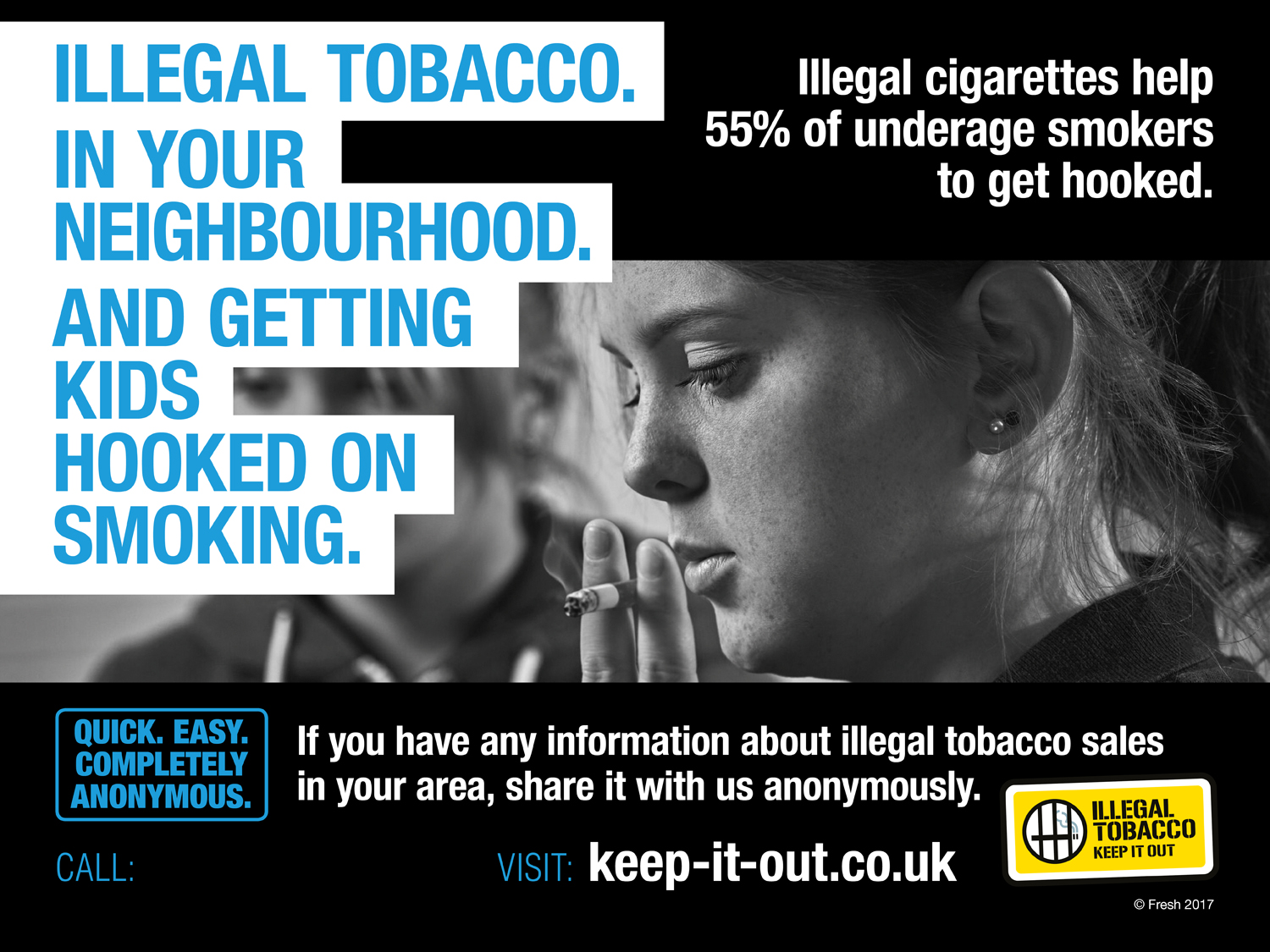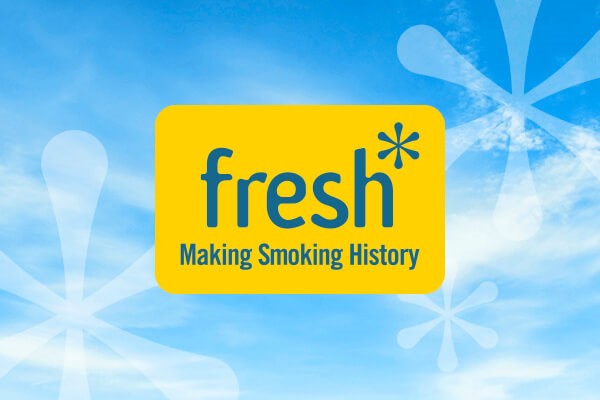Illegal tobacco bought by more than half of teenage smokers

Illegal tobacco has helped over half of underage smokers in the North East get hooked on smoking, a new survey released today suggests.
55% of children aged 14 and 15 who smoke say they buy illegal tobacco from sources like “tab houses” and shops – while 73% say they have been offered illegal tobacco.
The figures, from the 2017 North East Illegal Tobacco Survey, are released as Fresh launches the new “Keep It Out” campaign aimed at helping the public to spot illegal tobacco, report it and to encourage smokers not to buy it.
As well as helping children to start smoking, people supplying illegal tobacco are often involved in drugs or loan sharking. Buying it means supporting crime and can bring children into contact with criminals.
Ailsa Rutter, Director of Fresh, said: “One in two smokers will die from their addiction, and no-one wants their child to start. While fewer people than ever are now smoking, illegal cigarettes are often responsible for getting children initiated on smoking as they can buy it at pocket money prices from people who don’t care who they sell to.”
Peter Wright, from the North East Public Protection Partnership, said: “People might think they are getting a bargain, but illegal cigarettes comes at a very high cost to local communities and buying it means supporting it.
“A lot of people kid themselves they’re buying duty free. But the trade is linked to organised crime and at the top are organised criminals with UK smokers in their sights. Local criminals also regularly come into neighbourhoods to supply their dealers.
“Even if you don’t think local sellers are selling to kids, many are, and there is strong intelligence of kids in school uniforms buying from tab houses. Whether people smoke or not, we’re urging people to do something about it and report it anonymously.”
Amanda Healy, Director of Public Health for Durham County Council and Chair of the North East Directors of Public Health Network, said: “Smoking kills one in two long term users. I fully support the Keep It Out campaign, as we need to alert people that Illicit tobacco in our communities keeps smokers hooked.
“Whilst much progress has been made to reduce the availability of illicit tobacco, we still need to keep downward pressure on the illicit tobacco market to keep this off our streets”.
Anyone with information about houses, shops, pubs or individuals selling illegal tobacco can give information online at www.keep-it-out.co.uk or by calling the illegal tobacco hotline at 0300 999 00 00. All information will be treated anonymously.
The survey of over 3000 people from across the North East, which has tracked the size of the illegal tobacco market since 2009 and attitudes towards it, has found in 2017:
- Illicit makes up 12% of all tobacco smoked – a smaller proportion than in 2009 (16%) but slightly higher than in 2015 (9%)
- Less than one in five (18%) of smokers buy illicit – a reduction from 24% in 2009
- The proportion of smokers who have tried illicit tobacco has decreased from 46% in 2011 to 37% in 2017
- Those smokers who do buy illegal tobacco are buying more of it – it makes up 58% of their overall tobacco compared to 40% in 2013.
- Private addresses are the leading source (42%) followed by shops (24%).
- Less is now being bought in pubs – but pubs are still the place where smokers are most likely to be offered it by hawkers touting it around.
Shopkeeper John McClurey, a former North of England President of the National Federation of Retail Newsagents, said: “Most retailers would not dream of stocking illegal tobacco or selling to children, and are very angry about the illegal tobacco trade. The figures are concerning.
“There is a strong case for tougher penalties against those who sell it as a deterrent and to weed out the few bad apples in the retail trade without conscience.”
Fresh is calling on the Government to introduce a licensing system for tobacco manufacturers and retailers to provide funding for improved enforcement and other measures to reduce smoking prevalence. The measure would be popular in the North East with 76% of adults strongly in favour of businesses needing a valid licence to sell tobacco.
Official estimates released by HM Revenue & Customs show that while the overall size of the illicit market for cigarettes in 2016/17 has remained
fairly stable since 2010, as smoking prevalence has declined significantly, it has become a higher proportion of the total market. For more details, read the press release from Action on Smoking and Health on the latest HMRC UK tax gap figures.
